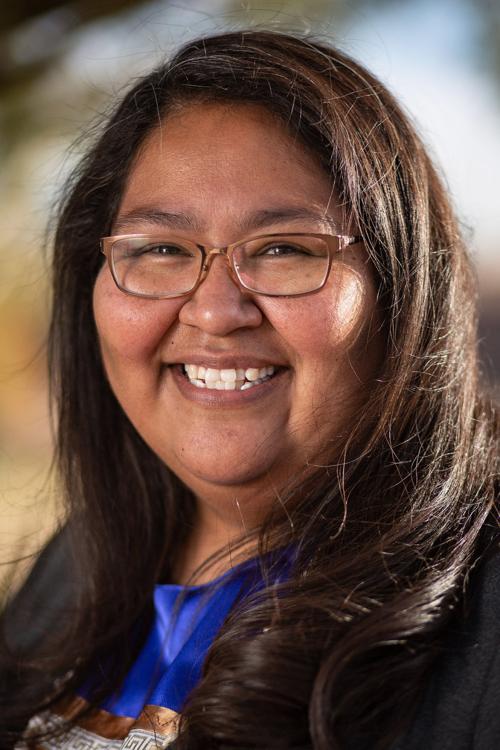The Pascua Yaqui Tribe reached a settlement with the Pima County Recorder’s Office that will establish an early voting site on the reservation through December 2024.
The agreement was reached Aug. 12 stemming from a lawsuit about a controversial decision in 2018 by then-Pima County Recorder F. Ann Rodriguez to remove an in-person early voting location on the reservation because of low use by voters.
“The right to vote is the cornerstone of our democracy, and it is just as important in Arizona Indian Country and the Pascua Yaqui Reservation as it is in Pima County,” said tribal Chairman Peter S. Yucupicio. The chairman also thanked current Recorder Gabriella Cázares-Kelly “for agreeing to settle this matter, with the aim to work cooperatively with the tribe and ensure that tribal members have an equal opportunity to vote,” Yucupicio said at a news conference Monday.
The tribe, represented by Campaign Legal Center, Osborn Maledon, and the Indian Law Center at Arizona State University, sued Rodriguez in 2020 in Tucson federal court alleging violation of the Voting Rights Act, depriving tribal residents of their right to vote under the first and 14th amendments of the U.S. Constitution.
U.S. District Court Judge James Soto ruled that attorneys for the tribe had not convinced him that he should rule that Rodriguez should set up a voting site for the 2020 election at New Pascua, adding that the majority of tribal members vote by mail, and those who preferred to vote at an onsite voting location on the reservation did not testify that they would not be able to vote without a site on the reservation.
Soto dismissed the tribe’s complaint without prejudice and ordered the tribe and the recorder’s office to confer about further litigation in this case.
The agreement establishes an early voting site on the Pascua Yaqui reservation for every statewide primary and general election between now and Dec. 31, 2024. The agreement runs through the end of Cázares-Kelly’s term.
Under the agreement, the tribe and the recorder’s office must identify an acceptable early voting location by February 2022. The agreement also establishes that the county will fully staff a ballot drop box location during the early voting period.
Pascua Yaqui Councilwoman Herminia Frias said the agreement “demonstrates once and for all that every vote matters. We did not accept no for an answer, we challenged the Recorder’s Office to protect our right to vote for everyone voting on the Pascua Yaqui reservation.” Initially, “we thought it was going to be simple, especially during the pandemic” to have an in-person early voting location on the reservation, said Frias. She said the process should “make it easier, not harder to vote and encourage, not discourage voters.”
Frias said in a news release that Cázares-Kelly “has brought a fresh and inclusive perspective, she respects tribal sovereignty, and we are ecstatic to have the opportunity to work with her.”
Jonathan Diaz, counsel for Voting Rights at Campaign Legal Center, said in the release that tribal members shared stories, including traveling up to three hours round trip to vote at the nearest early voting site, and the hardships they faced “made it clear that the tribe did not have equal access to voting that their Pima County neighbors enjoyed.”
“The closure of the Pascua Yaqui early voting site is a clear, modern-day example of how Native American voting rights continue to remain under threat,” said Cázares-Kelly. “It reminds us that we do not all start from the same starting line, and some communities have to work harder to exercise our most basic and fundamental right. It is an honor to reinstate the early voting site to provide equitable access for the tribal community.”





